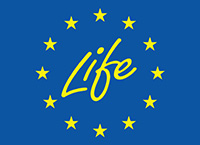The EU has continent-wide Nature Restoration Law
Today, the Nature Restoration Law entered into force. The law’s objective is the long-term recovery of nature in the EU’s land and sea areas. It contains legally-binding targets for all EU Member States to restore 20% of the EU’s land and sea areas by 2030, and all ecosystems in need of restoration by 2050. It also includes specific targets for agricultural ecosystems.
Two years ago, the Commission laid down the track and published its legislative proposal. Since then, the law encountered many hurdles, taking the forms of many campaigns attempted to stop this key piece of nature legislation. The law’s last hurdle was the June Council of the EU Environment Ministers’ meeting where, after a month-long deadlock, Minister reached a majority and adopted the negotiated compromise.
In August 2024, it has finally crossed the finishing line! Now it is the Members States’ turn. Within two years, have to submit their National Restoration Plans to the European Commission, outlining how they will deliver on the law’s targets.
Because of its wide variety of benefits for biodiversity, organic farming should be a key measure to restore nature on agricultural land.
More information on organic and climate:
- Get a visual overview of organic’s many benefits for climate and biodiversity in our infographic,
- Read our document on organic’s benefits for climate and biodiversity, and
- Check out our infographics on soil and biodiversity & climate change.
Could not find what you were looking for? Visit our website or contact [email protected]. Do note that we prioritise our members’ requests. We invite our members to translate our materials and the infographic Organic’s many benefits for climate and biodiversity. The source materials for this are available on our member extranet > hot topics > Water, soil & biodiversity. For information about what you can gain from being a member, read our membership page and contact [email protected].

The work of IFOAM Organics Europe on this topic is co-financed by the LIFE programme of the European Union, under the Climate, Infrastructure and Environment Executive Agency (CINEA). This page only reflects the views of the authors and its sole responsibility lies with IFOAM Organics Europe. The CINEA is not responsible for any use that may be made of the information provided.

